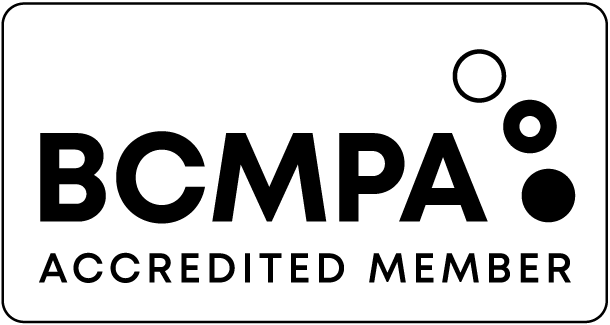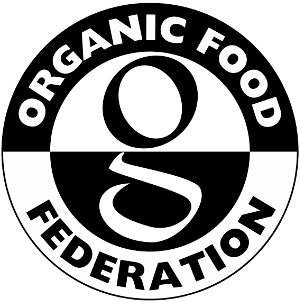
Pet care fulfilment refers to the end-to-end logistics process of storing, packing, and delivering pet-related products, ranging from food and supplements to toys and grooming items. In the UK, where over 36 million pets (Spherical Insights) are part of households, ensuring timely and safe delivery of these products is crucial for businesses aiming to meet the high expectations of pet owners.
Let’s face it, for pet product retailers and manufacturers, getting fulfilment right isn’t just about shipping boxes, it’s about delivering items that directly impact your beloved pets’ health and wellbeing. From heavy bags of food to fragile toys and temperature-sensitive medications, pet products present unique logistics challenges that standard fulfilment processes simply can’t handle effectively.
We’ve seen a rapid expansion in the UK pet care market that has created both opportunities and complications for business owners. Pet products can be tricky to store and ship because they come in so many shapes, sizes, and types. That’s why pet brands need fulfilment services that can handle a wide range of items while keeping things running smoothly behind the scenes. On top of that, customers now expect their orders to arrive quickly, in perfect condition, and in packaging that’s better for the planet.
This comprehensive guide will walk you through mastering pet care fulfilment, whether you’re struggling with current operations or planning to scale. We’ll explore the unique challenges of pet product fulfilment, strategies for optimisation, how to select the right 3PL partner, and ways to customise your fulfilment to strengthen your brand’s connection with customers.
The pet care industry has exploded in recent years, with the global market value reaching USD 246.66 billion in 2023 (Fortune Business Insights). This remarkable growth has created unique challenges and opportunities for businesses operating in the pet care fulfilment space.
Ecommerce has become a driving force in this expansion. In 2022, online pet product sales exceeded USD 30 billion, accounting for 36% of total industry sales (ETAILPET). Notably, a 2023 study revealed that approximately 86% of pet owners now shop for their pets online (CBIP Logistics).
Several factors fuel this robust growth. First, pet ownership has increased significantly, with about 85 million homes owning a pet according to the American Pet Products Association [4]. Furthermore, the trend of pet humanisation has intensified consumer spending, with pet owners allocating substantial budgets toward premium products. In fact, pet owners in the U.S. spent around USD 50 billion on pet treats and foods alone out of USD 93.95 billion in total pet spending in 2023.

Pet care fulfilment presents special challenges compared to standard shipping operations. First and foremost, many pet products require specialised storage conditions. Temperature control is essential for perishable items like raw pet foods, which have gained significant popularity with searches for “raw dog food” increasing significantly over the past decade.
Moreover, pet products frequently involve bulky and heavy items. The average bag of dog food weighs approximately 13 KGs, making shipping costs substantially higher. This creates a significant challenge for merchants striving to offer competitive shipping rates.
Inventory management also differs considerably in the pet sector. With the growing range of pet products – from food and medications to toys and accessories – businesses must manage numerous SKUs. Consequently, this increases warehouse space requirements and complicates order processing.
Another crucial aspect is expiration date tracking. While most pet foods remain shelf-stable for one to two years, different factors can affect shelf life, necessitating careful batch tracking and inventory rotation.
Pet care fulfilment encompasses diverse product categories, each with unique handling requirements:
In essence, successful pet care fulfilment demands specialised knowledge and infrastructure to handle the product landscape effectively. As the industry continues its upward trajectory, businesses that master these unique fulfilment challenges will have an advantage over the competition.
Shipping substantial pet products presents one of the most significant hurdles in the industry. Pet supplies frequently include bulky items such as cages, large beds, and aquariums that occupy considerable warehouse space and require special handling procedures. Perhaps most challenging are heavy bags of pet food and cat litter, which often weigh, creating substantial shipping costs and handling difficulties.
Dimensional weight further complicates matters for pet product retailers. Carriers typically charge based on either actual weight or dimensional weight (calculated from package size), whichever is greater. This means large but lightweight items like pet beds can incur surprisingly high shipping costs despite their minimal actual weight.
To mitigate these issues, successful fulfilment operations implement:
Temperature control represents a critical aspect of pet product fulfilment, especially given the growing popularity of fresh, raw, and refrigerated pet foods. These items must maintain strict temperature ranges – typically between 0°C and 4°C for fresh products -throughout storage and transport.

Beyond wet pet food, numerous other products require temperature management:
Failure to maintain proper conditions leads not only to spoilage but also heightened food safety risks. Improper storage can accelerate bacterial growth, creating safety hazards and potential liability issues. For these reasons, sophisticated temperature monitoring systems throughout the supply chain have become essential, not optional.
The diverse nature of pet product orders creates significant packing and shipping complications. A single order might combine small toys with bulky litter boxes, lightweight accessories with heavy food bags, or fragile glass items with sturdy plastic products.
This variety demands meticulous picking processes and specialised packing expertise. Warehouse staff must carefully balance box contents to prevent damage, particularly for delicate items like aquariums, ceramic bowls, or glass containers. Additionally, improper packaging of mixed orders risks inaccurate shipments and damaged products, leading to costly returns and dissatisfied customers.
Effective fragile product protection requires advanced solutions including cushioning materials, proper item placement within packages, and secure sealing techniques. Each product category necessitates different handling protocols to ensure intact delivery.
Inventory management grows substantially more complex when dealing with perishable pet products. Pet food and treats typically remain viable for 12-18 months unopened, but managing this timeframe across thousands of items requires sophisticated tracking systems.
First-in, first-out (FIFO) inventory management becomes essential for perishable goods. This approach ensures older stock ships first, reducing waste and maintaining product freshness. Without proper rotation systems, businesses risk sending expired products, leading to health risks for pets and potential legal issues.
Regulatory compliance adds another layer of complexity. Pet products, especially food and medications, must adhere to strict standards from organisations like the FSA. Documentation, proper storage conditions, and regular audits are mandatory requirements, not optional considerations. These compliance obligations necessitate robust tracking systems and proper staff training to avoid penalties and maintain consumer trust.
Successful pet businesses recognise that streamlining fulfilment operations directly impacts bottom line results. By implementing niche systems tailored to pet product requirements, companies can dramatically improve efficiency while reducing costs.
First-In, First-Out (FIFO) inventory management ensures older stock is sold or used first, a critical approach for perishable pet products. This method organises items by expiration date, with older products positioned at the front of storage areas for immediate picking.
Implementing FIFO for pet supplies delivers several advantages:
For perishable pet items like treats and nutraceuticals, FIFO proves essential in maintaining freshness and managing cold-chain logistics requirements. Regular inventory audits and consistent staff training reinforce proper rotation practices, ultimately preserving product quality.
Dimensional weight (DIM weight) significantly impacts shipping costs for pet products. Carriers calculate this metric by multiplying length × width × height, then dividing by a dimensional factor (typically 139 for domestic shipments). They then charge based on whichever is greater – actual weight or dimensional weight.
For bulky yet lightweight items like pet beds or carriers, this calculation often results in higher shipping costs. To optimise expenses:
Given that large, lightweight products often ship based on dimensional weight, smart packaging strategies become essential for profitability.
Although initial investment in automation may seem substantial, modern pet care fulfilment increasingly benefits from these technologies. Automated storage and retrieval systems can handle 1,800+ pallets daily while maintaining perfect inventory accuracy.
Automation offers advantages for high-volume pet operations:
Nonetheless, manual handling remains appropriate for specialised items requiring careful inspection or custom packaging. The ideal approach balances automated systems for routine operations with strategic manual intervention for value-added services.
Kitting, combining multiple products into a single unit for shipping, creates substantial efficiencies for pet product businesses. This process proves especially valuable for subscription models, which continue gaining popularity in the pet sector.
Pre-assembled kits offer several operational advantages:
For pet subscription boxes containing curated product selections, kitting operations streamline fulfilment while creating opportunities for creative presentation. This approach simultaneously improves operational efficiency and strengthens customer loyalty through superior delivery experiences.
Selecting an appropriate third-party logistics (3PL) partner is arguably the most critical decision for pet product businesses seeking to excel in fulfilment operations. Finding the right match requires careful evaluation of several key factors.

First and foremost, experience in the pet care industry is essential. A specialised 3PL partner understands the unique challenges and opportunities within the pet sector. Pet products often require specialised handling and storage conditions that general fulfilment providers might not offer. Primarily, look for partners who demonstrate knowledge of pet product regulations and compliance requirements.
A reliable 3PL should act as an extension of your business rather than merely a supplement. They should understand that pet owners are passionate about their animals’ wellbeing and expect the same level of care from those handling their products.
Service Level Agreements (SLAs) formalise the commitments between your business and the 3PL provider . Hence, comprehensive SLAs should include:
Subsequently, regular monitoring of these metrics ensures the 3PL maintains compliance with established standards.
Advanced technology significantly enhances fulfilment efficiency. So, your chosen partner should offer seamless integration with popular ecommerce platforms like Shopify, WooCommerce, and Magento. Their Warehouse Management System (WMS) should provide real-time inventory tracking, batch management, and order status visibility.
Sophisticated technology enables data-driven insights about your operations, allowing for continuous improvement.
Naturally, as your pet business grows, your fulfilment needs will evolve. Select a 3PL with strategically positioned warehouses that support both national and international expansion. Ultimately, the right partner offers flexible warehouse solutions that adapt to seasonal peaks and business growth.
Scalability extends beyond physical space, it encompasses staffing, technology, and processes that can efficiently handle increased order volumes without compromising quality or speed.
Beyond operational efficiency, effective pet care fulfilment creates opportunities to showcase your brand identity and values. Every package delivered represents a crucial touchpoint with your customers, making customisation essential for building lasting relationships.
Pet owners typically view their purchases as investments in their companions’ wellbeing, creating emotionally-driven expectations for delivery. Efficient order fulfilment directly impacts customer satisfaction, with delays or errors damaging brand reputation. This emotional connection requires fulfilment operations that consistently deliver accuracy and timeliness.
Pet care consumers increasingly demand sustainability, primarily among younger generations seeking eco-friendly products. This shift extends to delivery preferences, with 52% of pet owners actively reducing plastic usage (Smurfit Westrock) and six out of ten viewing packaging materials as important. Accordingly, sustainable fulfilment practices, like eco-friendly packaging and waste reduction, have become essential for meeting customer expectations.
The unboxing moment has evolved from a simple transaction into a powerful marketing opportunity. Consider these customisation strategies:
Research from Dotcom Distribution confirms that 40% of online shoppers are more likely to recommend products to friends if they arrive in branded packaging and would share images on social media if products arrived in branded packaging. This social sharing creates valuable exposure while reinforcing brand identity. Furthermore, custom packaging increases perceived product value, justifying premium pricing for organic, grain-free, or specialty pet products.
Data analytics offers significant opportunities to enhance pet care fulfilment effectiveness. Enhanced inventory management optimises stock levels, reducing both stockouts and excess holding costs. Similarly, tracking order accuracy metrics minimises errors and lowers return rates, building customer trust.
Real-time tracking updates maintain customer confidence throughout the delivery process. These communications are particularly important for pet medications or specialty foods where timely delivery directly affects pet health.
Ultimately, effective data utilisation creates fulfilment operations that reflect your brand’s commitment to quality, efficiency, and customer care, transforming logistics from a behind-the-scenes function into a powerful element of your overall brand experience.
Bray Solutions offers specialised fulfilment services for the pet care industry, including:
Just Be Kind Dog Food Ltd — Scaling a Vegan Pet Brand with Bray Solutions
When Dr. Arielle Griffiths launched Just Be Kind, a vegan dog food company, she was driven by a mission to revolutionise pet nutrition. As a plant-based vet, Dr. Griffiths started the business in 2020, handling everything herself—packing and shipping over 100kg of dog food a day from a small rented unit. But as orders grew, so did the physical and logistical challenges.

Operating as a solo founder, Dr. Griffiths found herself stretched thin. Space was tight, packaging demands were exhausting, and managing logistics was slowing the company’s growth. She needed a 3PL partner that could scale with her, integrate easily, and uphold the high customer service standards her brand was known for.
Bray’s Solution
Bray Solutions stepped in with a tailored fulfilment plan, built specifically for Just Be Kind’s needs:
The transition took just two months – even over the busy Christmas period.
The Results
Since partnering with Bray in December 2021, Just Be Kind has seen:
Pet care fulfilment isn’t just about shipping products, it’s about protecting the trust customers place in your brand to care for their pets. Whether it’s storing temperature-sensitive supplements, managing bulky dog beds, or getting the right mix of treats and toys into a subscription box, fulfilment for pet products requires precision, flexibility, and industry expertise.
As the pet care market continues to grow and evolve, so do customer expectations. Fast delivery, product freshness, sustainable packaging, and reliable communication are now non-negotiables. Businesses that master these logistics challenges will earn customer loyalty, reduce costs, and unlock new opportunities for growth.
That’s where Bray Solutions comes in.
With a deep understanding of the pet care sector, a track record of helping brands like Just Be Kind scale with confidence, and a fulfilment infrastructure built for speed, accuracy, and care – Bray is more than a logistics provider. We’re your pet care fulfilment partner.
Ready to take the hassle out of fulfilment and focus on growing your pet brand?
Get in touch with Bray Solutions today and let’s make logistics the easiest part of your business.






We integrate with a number of different systems.
Get in touch to find out how we can help.